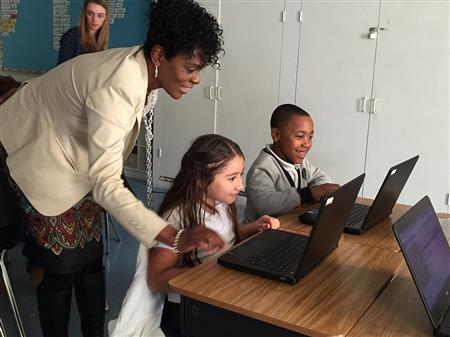
In a transformative move, Mississippi ushered in a new era of education with the passage of the MS Computer Science and Cyber Education Equality Act in March 2021. This landmark legislation not only mandates computer science (CS) instruction in elementary grades but also signifies a paradigm shift in how the state prepares its students for the future. Paired with the state's visionary 10-year strategic plan, educators can anticipate substantial changes in their approach to student development.
However, the excitement surrounding this requirement is tinged with apprehension, especially among educators unfamiliar with integrating CS into their curriculum. The necessity of teaching CS to young learners, coupled with existing curriculum demands, raises legitimate concerns. Yet, this push for CS education is grounded in research affirming that Early Exposure, Interdisciplinary Learning, and Hands-on Experiences form the bedrock for student success in post-secondary education and industry roles.
Early Exposure: Building Foundations for a Lifetime of Learning
1. Computational Thinking Development: Early exposure nurtures critical skills such as logic, sequencing, and pattern recognition, integral to these formative grades. Consistent interaction with these concepts fosters computational thinking—a problem-solving approach breaking down complex problems into manageable parts. This not only enhances academic skills but plays a pivotal role in developing executive functioning skills.
2. Collaborative Learning Opportunities: Interdisciplinary projects foster collaboration, nurturing teamwork and communication skills—an indispensable aspect of a student's skill set.
3. Foundation for Future Learning: Introducing CS early lays the groundwork for advanced learning, familiarizing students with fundamental concepts and terminology. This early exposure builds confidence and competence, applicable to diverse academic and workforce pursuits.
Early Exposure's Impact on Hands-on Learning
1. Problem-Solving Skills Development: Hands-on activities engage students actively, allowing them to encounter and solve real-world problems. This nurtures critical thinking and problem-solving skills, with tangible outcomes like programs, games, or prototypes fostering a sense of accomplishment.
2. Encouraging Creativity and Innovation: Hands-on CS projects stimulate creativity, encouraging students to devise unique solutions. By applying theoretical knowledge in practical scenarios, students reinforce their understanding.
3. Motivation for Further Exploration: Engaging in hands-on activities motivates students to delve deeper into CS, inspiring the pursuit of more advanced projects. Integrating CS with other subjects makes learning more engaging, relevant, and fosters increased interest and motivation.
Mississippi's commitment to early CS education is not just a mandate; it's a visionary step towards shaping a generation adept in problem-solving, collaboration, and innovation—a generation ready to embrace the challenges and opportunities of the future.
As a teacher tasked with teaching CS for the first time or to younger students, how do you approach this successfully? Check out the resources below to get started or take your students on a deeper dive into CS Instruction.
Resources
Mississippi College and Career Readiness Standards for Computer Science
MS4CS Integration guides (developed by the Center for Cyber Education at Mississippi State University)
Common Sense Digital Media (This curriculum is an excellent start for teaching students internet use practices)
Creative Computing Curriculum (Developed by the Creative Computing Lab at Harvard to accompany the Scratch platform)
Limited devices or internet access? An unplugged curriculum can help students gain the skills and benefits of computer science! CS Unplugged